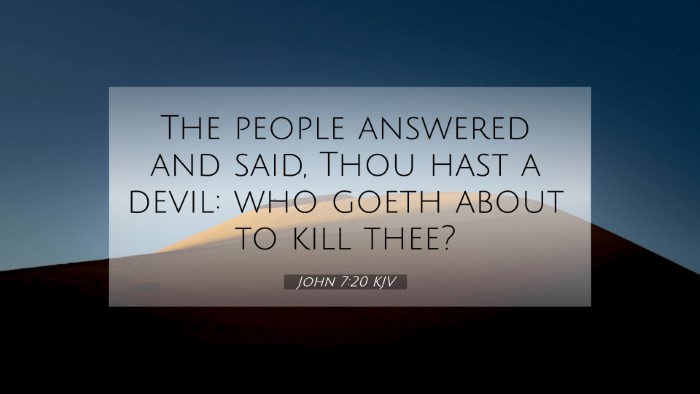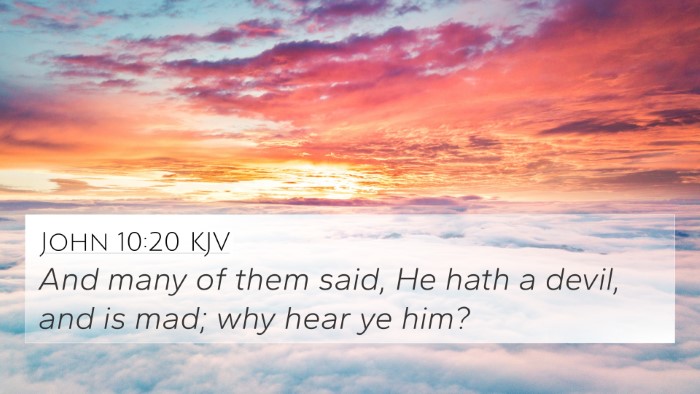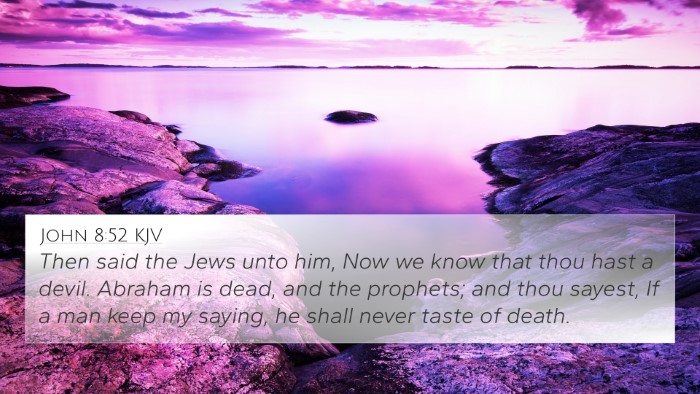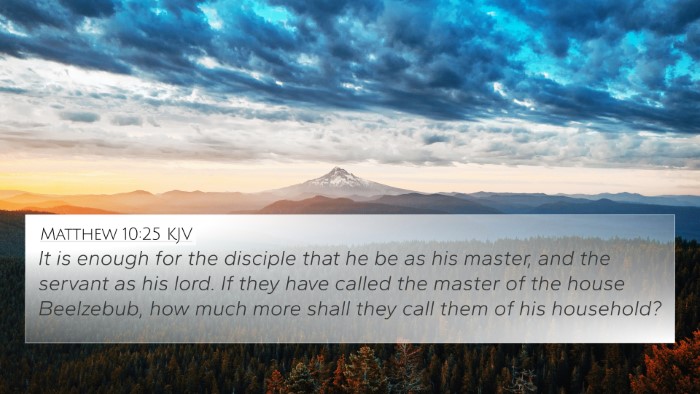John 7:20 - Understanding the Verse
In John 7:20, the verse states: "The people answered and said, 'You have a demon. Who is seeking to kill you?'" This response from the crowd showcases the misunderstanding and animosity towards Jesus during His ministry. The verse highlights themes of rejection, misinterpretation of Jesus’ messages, and the conflict with religious leaders.
Exegetical Insights
When analyzing John 7:20 using public domain commentaries, several key points emerge:
- Matthew Henry's Commentary: Henry emphasizes the ignorance of the people. They cannot comprehend the prophetic nature of Jesus' statements regarding His fate, indicating their spiritual blindness.
- Albert Barnes' Notes: Barnes notes the defensive nature of the crowd's response, suggesting a deep-rooted skepticism towards Jesus' claims. His interpretation reveals how fear and skepticism can distort understanding.
- Adam Clarke's Commentary: Clarke points out the irony in their accusation of Jesus being demon-possessed. He explains that such claims often arise from feelings of guilt and fear within the accusers themselves.
Bible Verse Cross-References
This verse has several cross-references that can enrich understanding and highlight the connections between various Biblical themes:
- John 8:48: "Then the Jews answered and said to Him, 'Do we not say rightly that You are a Samaritan and have a demon?'" - Similar misunderstanding and accusations against Jesus.
- Matthew 12:24: "But when the Pharisees heard it, they said, 'This fellow does not cast out demons except by Beelzebub, the ruler of the demons.'" - Connection of Jesus with demon possession accusations.
- Luke 11:15: "But some of them said, 'He casts out demons by Beelzebub, the ruler of the demons.'" - Further illustration of public perception regarding Jesus’ powers.
- Mark 3:22: "And the scribes who came down from Jerusalem said, 'He has Beelzebub,' and, 'By the ruler of the demons He casts out demons.'" - Continuation of the narratives that frame Jesus in opposition to demonic forces.
- Isaiah 53:3: "He is despised and rejected by men, a Man of sorrows and acquainted with grief..." - Prophetic reference about the rejection Jesus would face.
- John 1:11: "He came to His own, and His own did not receive Him." - Highlighting the theme of rejection prevalent in Jesus' life and ministry.
- John 7:12: "And there was much complaining among the people concerning Him. Some said, 'He is good'; others said, 'No, on the contrary, He deceives the people.'" - Directly preceding the current verse, illustrating division over Jesus' identity.
Thematic Connections
John 7:20 is rich with themes and connections that are evident when conducting a comparative Bible verse analysis:
- Misunderstanding of Jesus: The conflicting views of Jesus remind us of the dual nature of His ministry being both revelatory and divisive.
- Accusations and Rejection: The theme of being falsely accused appears frequently throughout scriptures, particularly relating to Jesus' identity.
- Spiritual Warfare: The notion of the demonic in these passages underscores the broader conflict of good versus evil pivotal in the New Testament narratives.
Tools for Bible Cross-Referencing
For those interested in delving deeper into cross-referencing Biblical texts, here are some tools and methodologies:
- Bible Concordance: Utilize a concordance to locate thematic connections between verses.
- Cross-Reference Bible Study: Employ cross-reference guides that categorize verses by themes.
- Bible Reference Resources: Many online and print resources exist that provide comprehensive listings of related verses.
Application and Reflection
As we engage with John 7:20, it is vital to reflect on our understanding of Jesus and examine our own responses to His teachings:
- Personal Reflection: Consider how we may misinterpret or misunderstand messages from God.
- Community Dialogue: Engage with others in discussions about faith, understanding that differing interpretations can exist.
- Encouragement of Inquiry: Encourage questions and exploration within spiritual communities to foster a deeper understanding of scripture.











